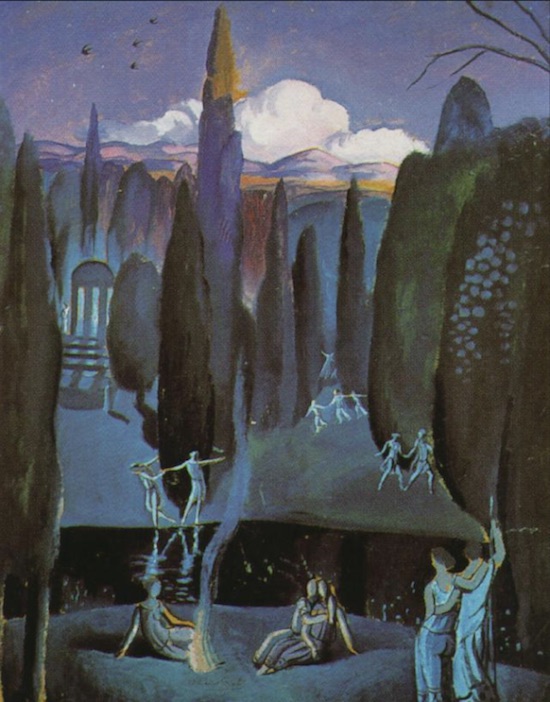
Salvador Dali Nymphs in a romantic garden 1921

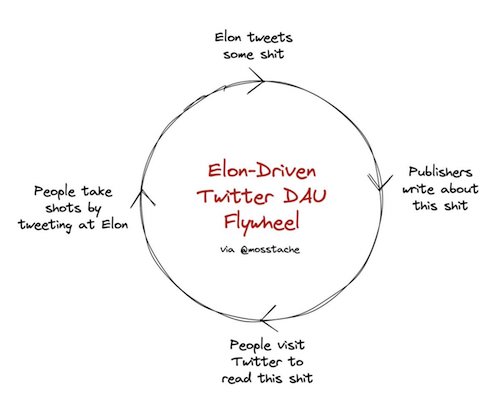
Daily Active Users

CBS coincidence
https://twitter.com/TheLastRefuge2/status/1594759852043157521

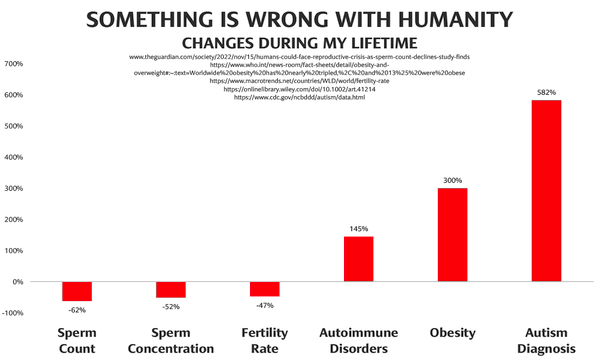

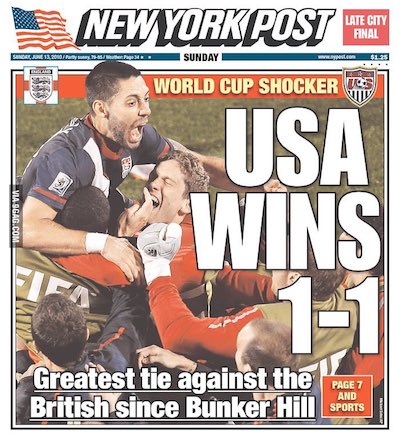

Balenciaga
https://twitter.com/i/status/1594869537144336384



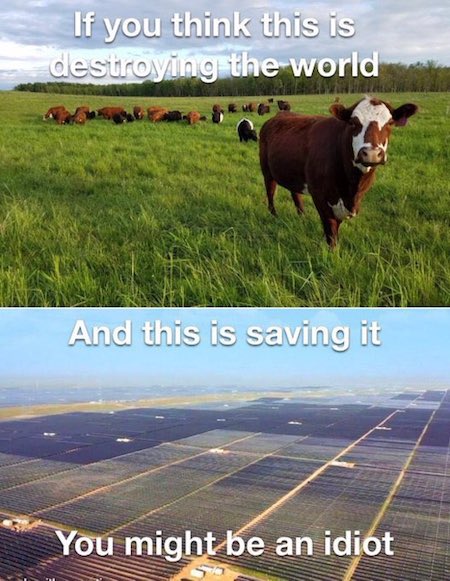


Why doesn’t someone shut him down when he utters such nonsense? Vladimir Zel simply declared there’s no corruption, but the EU can’t afford to accept that kind of BS. Bringing in the most corrupt country in -at least- the western hemisphere would end the EU. And they all know Russia will never accept NATO on its doorstep. We’re just wasting time -and lives.
• Zelenskyy Urges West To Support Ukraine’s Accession To NATO, EU (Az.)
Ukrainian President Volodymyr Zelenskyy has called on the Western countries in a plenary meeting of the NATO Parliamentary Assembly to support Ukraine’s applications for membership in the European Union and NATO, Report informs, citing Ukrinform. “All of you can see Ukraine’s significant contribution to the protection of our community. Everyone sees how important it is that we really united in defense after February 24. So, due to this, you also see that Ukraine should become a full member of the European Union and NATO. And I urge you to support our applications for membership in the EU and the Alliance,” Zelenskyy said in his speech at the NATO Parliamentary Assembly via video link.

Why does NATO have a Parliamentary Assembly?
• NATO Assembly Calls On Members To Declare Russia ‘Terrorist Regime’ (RT)
NATO’s Parliamentary Assembly has adopted a largely symbolic resolution calling on member nations to label Russia a “terrorist” state, claiming Moscow represents a “direct threat” to “Euro-Atlantic security” while demanding more military support to Kiev and an end to restrictions on the “forward deployment of NATO forces.” The non-binding declaration was passed by the NATO PA on Monday, with the body warning that “the Euro-Atlantic area is no longer at peace and that the global security environment has deteriorated rapidly” amid continued fighting in Eastern Europe, going on to denounce Russia’s military operation “in the strongest terms.”
The resolution made a series of requests to NATO members, asking them to “state clearly that the Russian state under the current regime is a terrorist one,” and to “increase military, intelligence, financial, training and humanitarian support to Ukraine,” including by “accelerating” arms shipments. The NATO bloc must “sustain this support for as long as it takes for Ukraine to prevail,” the resolution added, also asking that any existing restrictions on the “forward deployment” of Western forces along Russian borders be declared “null and void.” Washington alone has authorized nearly $20 billion in ‘lethal aid’ to Kiev since President Joe Biden took office in 2021, with much of that approved after Russia’s military operation kicked off in February.
NATO allies have acknowledged concerns that the arms flooding Ukraine’s chaotic battlefield have not been properly tracked, with the new resolution stressing the need to ensure the “traceability of the weapons delivered.” Ukrainian President Vladimir Zelensky addressed lawmakers from NATO states in a video message before the latest resolution was passed, praising the alliance for its military aid and for helping his country to “defend [itself] in this war.” In addition to declaring Moscow a “terrorist” state and other symbolic measures, the Parliamentary Assembly said NATO countries should work to create an “international tribunal” to prosecute Russian officials for alleged war crimes and compel “full reparation of damage loss or injury” linked to the conflict.
The Parliamentary Assembly’s resolutions are not enforceable among NATO members and are intended to merely advise the alliance on pressing issues. The body has taken an increasingly harsh stance toward Moscow in recent months, with its newly elected president, French Senator Joelle Garriaud-Maylam, insisting on Monday that Russian leaders “must be judged as terrorists in front of international tribunals.” While Monday’s resolution was largely focused on Russia and the conflict in Ukraine, it took more than one detour to single out Beijing, urging the alliance to develop a “common allied response to the increasing assertiveness of China.” The document called for “constructive dialogue,” yet also went on to denounce Beijing’s alleged “systemic challenge to Euro-Atlantic security” and “attempts to subvert the rules-based international order.”
The NATO PA declaration came after a similar resolution was adopted by the Parliamentary Assembly of the Council of Europe (PACE) last month. Russia left the European NGO in March, calling it a “convenient platform for NATO’s information and political campaigns.” While Kiev has repeatedly urged the collective West to declare Russia a “state sponsor of terror,” only a handful of countries – including Estonia, Latvia, Lithuania and the Czech Republic – have heeded the call, and their actions have been limited to symbolic gestures. Those with the power to enforce anti-terror sanctions against other states, namely the US, have so far refused to take that step.
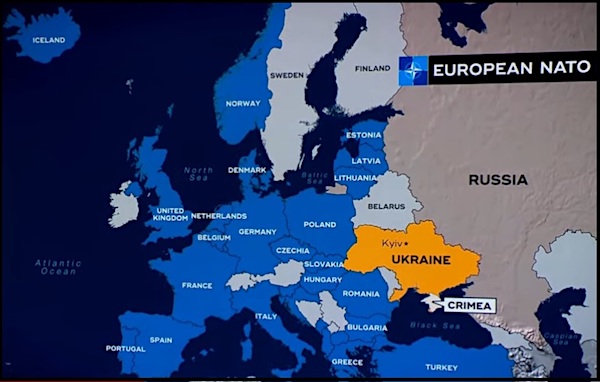

“We need to realize that this war most likely will end at some stage at the negotiating table…” But that’s not what NATO wants. Or Raytheon.
• Peace Talks Would Require More Weapons For Ukraine – NATO chief (RT)
The conflict between Ukraine and Russia will likely end in negotiations, which is why Kiev needs to be supplied with more weapons, NATO Secretary General Jens Stoltenberg has claimed. “We all want this war to end,”Stoltenberg said in his speech at the 68th Annual Session of the NATO Parliamentary Assembly in Madrid on Monday, adding that it matters to the US-led military bloc how exactly the conflict concludes. “We need to realize that this war most likely will end at some stage at the negotiating table. But we must also know that the outcome of those negotiations totally depends on strength on the battlefield,” the NATO chief argued. “So, if we want an outcome, which is acceptable for Ukraine… the best way of achieving that is to provide military support for Ukraine,” he said.
NATO members “must be prepared to support Ukraine for the long haul,”Stoltenberg said, urging lawmakers to keep advocating for more aid for Kiev in their own countries. Stoltenberg acknowledged that this assistance “comes at a price” for NATO members. “In our countries, many face cost of living crisis. Energy and food bills are rising. These are tough times for many,” he pointed out. However, the NATO chief argued that Western countries will have to pay “a much harsher price” if Russia is allowed to achieve victory in Ukraine, as it would signal to other “authoritarian regimes” that they can achieve their goals by force, which would “make the world more dangerous.”
Stoltenberg also warned that “it would be a great mistake to underestimate Russia” because Moscow “retains significant military capabilities and a high number of troops.” High-ranking Russian officials have repeatedly said that Moscow is ready to negotiate a settlement with Ukraine, while accusing Kiev of being unwilling to talk, and deliberately putting forward unrealistic conditions for dialogue. Russia has described the conflict in Ukraine as a “proxy war” being waged against it by the US and NATO. Moscow has consistently criticized weapons deliveries to Ukraine by Western countries, saying they only prolong the fighting and increase the risk of a direct confrontation between Russia and NATO.

“Ukraine had previously mandated lifetime financial monitoring of “politically exposed persons,” including government officials and lawmakers – until Zelensky signed an amendment last week limiting it to just three years.”
• Ukraine Quietly Abolished Corruption Rule (RT)
President Vladimir Zelensky harmed Ukraine’s hopes of joining the EU by signing an amendment that reduced financial oversight of politicians, anti-corruption activists in Kiev said on Monday. The measure “practically kills” efforts to combat money-laundering, claimed the head of the Anti-Corruption Action Centre (AntAC). Ukraine had previously mandated lifetime financial monitoring of “politically exposed persons,” including government officials and lawmakers – until Zelensky signed an amendment last week limiting it to just three years. Officially, the law is supposed to “protect Ukraine’s financial system from Russia and Belarus,” but the AntAC says it will harm the country’s interests instead.
“With this law, politicians destroyed the system of financial monitoring of their loved ones, which means they actually blocked negotiations on Ukraine’s accession to the EU,” AntAC head Vitaly Shabunin said on social media. The amended law “practically kills the system of preventing money-laundering by Ukrainian politicians,” he added. AntAC’s executive director Daria Kaleniuk pointed out that the law also breaks Kiev’s promise to the European Union, one of the seven commitments made by Zelensky to Brussels in June. “In order for us to be able to convince our European partners that we are serious about joining the EU and are implementing all the necessary reforms for this, we need to correct this,” she told Hromadske.
After signing the law on Thursday, Zelensky told the Bloomberg New Economy Forum – via video link – that he’d basically ended corruption in Ukraine. “No one will be able to forgive corruption in the future Ukraine,” he said, adding that all the corrupt officials had fled the country while those that remain will not be tempted to “interfere in business operations” because all government services had gone electronic. The old law provided for lifelong financial monitoring of the president, prime minister, ministers and their deputies, members of parliament, management of the national bank, senior security officials, key judges and prosecutors, as well as military commanders.

The video is very clear, but of course they deny it. The claim is that the unarmed Russians fired first, and only then were executed. But executing unarmed soldiers is still as illegal as it comes.
• Duma Speaker Calls for ‘Nazi’ Zelensky to Face War Crime Charges (Celente)
Vyacheslav Volodin, the speaker of Russia’s lower house, called on Ukrainian President Volodymyr Zelensky to face war crime charges over a video that claimed to show Ukrainian forces opening fire and killing a dozen Russian POWs. “Everyone has seen evidence of Ukrainian Nazis shooting our soldiers lying down, without weapons. This is how the Nazis behave,” Volodin said in a statement posted to Telegram, The Jerusalem Post reported. “The Kyiv regime deserves the most severe punishment for its atrocities.” Video purportedly shows Ukrainian troops executing a dozen captured Russian troops has faced some media scrutiny in the U.S., which would have been unheard of at the start of the war.
The New York Times reported that the video was first circulated by news outlets in Ukriane in an effort to “laud the military prowess” of the country’s military. The paper said the videos sparked a “fierce response” in Russia and Moscow has called for an investigation. The paper said the killings occurred in Makiivka, in the Luhansk region. “Countries cooperating with the Kyiv regime must understand that they support the Nazi state, sadists whose hands are up to the elbows in blood,” Volodin said. Russian President Putin’s critics say the Kremlin is loose with the Nazi designation and uses it to win support from the public against adversaries. In fact, in his 9 May Victory Day speech, Putin said that the purpose of the military action was to purge Ukraine of its “Nazi” nationalist leadership.

Official retraction? Apologies?
• Associated Press Fires Journalist Who Claimed Russian Missiles Hit Poland (CTH)
The Associated Press received a lot of international scorn for reporting incorrectly that Russia fired missiles into Poland. As soon as the AP attributed the missile attack to Russia almost immediately other media outlets began promoting calls for a NATO led war against Russia. Additionally, the G20 summit was taking place and various international leaders began discussing an article-5 convention against Russia. However, the single source of the AP report was wrong, a senior U.S. intelligence official, if there actually was a source. It was the Ukraine military who fired the missile into Poland, not Russia. The Daily Beast notes today that the Associated Press has fired James LaPorta, the journalist who made the claim of Russian origin.
(Via Daily Beast) – The Associated Press scared much of the world last Tuesday when it alerted readers that “a senior U.S. intelligence official” said “Russian missiles crossed into NATO member Poland, killing two people.” That report, which was widely cited across the internet and on cable news, was taken offline the following day and replaced with an editor’s note admitting the single source was wrong and that “subsequent reporting showed that the missiles were Russian-made and most likely fired by Ukraine in defense against a Russian attack.” On Monday, the AP fired James LaPorta, the investigative reporter responsible for that story, Confider has learned. The piece, which was originally co-bylined with John Leicester (who is still working at the AP), attributed the information to a single “senior U.S. intelligence official,” despite the AP’s rule that it “routinely seeks and requires more than one source when sourcing is anonymous.”

“The EU will have to secure around 500,000 to 600,000 barrels per day of diesel to replace the Russian volumes..”
• EU Hoarding Russian Diesel Before Ban – Reuters (RT)
European traders are boosting purchases of Russian diesel ahead of the EU embargo on the country’s oil products, which comes into force in February, Reuters reported on Monday, citing cargo tracker Vortexa. According to the report, Russian diesel shipments headed to the Amsterdam-Rotterdam-Antwerp (ARA) storage region surged to 215,000 barrels per day from November 1 to November 12. It is a 126% increase from October, according to Pamela Munger, Vortexa senior market analyst. Moreover, according to Refinitiv data, so far in November Russian diesel made up 44% of the bloc’s imports of the fuel, against 39% last month. This means that Russia remains the region’s largest diesel supplier, despite the fact that overall imports of Russian fuels to the EU dropped significantly over the past months due to Ukraine-related sanctions.
The EU embargo on Russian oil comes into force next month, while the ban on petroleum products will take effect on February 5. Analysts warn it will be difficult for the region to find alternative sources for diesel once this happens, as they are scarce and more costly, while Europe’s domestic diesel production falls short of the region’s consumption. “The EU will have to secure around 500,000 to 600,000 barrels per day of diesel to replace the Russian volumes; replacements will come from the US as well as east of Suez, primarily the Middle East and India,” Eugene Lindell, market analyst at energy consultancy FGE, told Reuters.

“The UK has purchased at least 39 shipments of Russian oil since February, although the cargoes were registered as imports from other countries..”
• UK Bypassing Its Own Sanctions On Russian Oil – Sunday Times (RT)
The UK has purchased at least 39 shipments of Russian oil since February, although the cargoes were registered as imports from other countries, the Sunday Times has reported, citing tanker traffic data and trade statistics. Russian-origin oil shipments, worth about £200 ($236) million, were reportedly delivered to UK ports after ship-to-ship transfers, a practice widely used when large tankers that are unable to dock due to their size transfer their cargo to smaller vessels. According to the Sunday Times’ findings, this practice gives the shipping companies a way to register their cargo without providing the actual origin of the shipments, stating instead the country of dispatch as the source of the cargo. In this way a shipment of Russian-made goods can be registered as originating in Germany if it is brought to a UK port by a German firm.
The news outlet was able to track dozens of shipments of Russian oil that have arrived at UK ports since March, logged as originating in Germany, the Netherlands, Poland, France and other countries. At least 13 of those reportedly arrived in June and July. However, official figures on oil imports from the UK Office for National Statistics (ONS) showed the country did not receive any oil from Russia in those months. According to maritime experts, ship-to-ship transfers have become more popular since Western nations began targeting Russian oil exports this year, as part of sanctions over Moscow’s military operation in Ukraine. “Ship-to-ship transfers have become a really useful method to obfuscate the destination and the origin of the cargo.
The Iranians started it, the Venezuelans perfected it, the Russians picked it up and ran with it,” Michelle Wiese Bockmann, energy and shipping analyst at the shipping journal Lloyd’s List, told the news outlet. According to Refinitiv, which monitors ship-to-ship transfers, there have been some 267 such transfers around the world involving Russian oil since March. A UK embargo on maritime Russian oil imports is scheduled to come into force on December 5. However, according to maritime experts, given the registration loophole and ship-to-ship transfer practices, it will be difficult for the UK to actually stop Russian oil from arriving in the country, even after that date.

“Legal experts have expressed doubt it is possible to unilaterally confiscate another country’s assets under existing international law.”
• EU Struggles To Seize Russian Assets – Politico (RT)
The European Commission is investigating how it might go about confiscating hundreds of billions of dollars in Russian state and private assets, according to a document seen by Politico on Monday. The initiative’s goal is reportedly “identifying ways to strengthen the tracing, identification, freezing and management of assets as preliminary steps for potential confiscation.” The bloc has its eyes on almost $300 billion in Russian central bank assets currently frozen, plus the assets of Russians on the sanctions list. The European Council last month reminded the Commission that it had been tasked with presenting “options in line with EU and international law” for using those frozen Russian funds “to support Ukraine’s reconstruction.” Legal experts have expressed doubt it is possible to unilaterally confiscate another country’s assets under existing international law.
With an eye toward changing that law, Brussels has proposed making sanctions evasion a crime in the EU, a decision which would require unanimous assent by member countries. However, even if that agreement was forthcoming, the bloc would have to litigate each individual seizure, proving a clear link between the owner of the assets in question and Russia’s military operation in Ukraine. Foreign investments are protected against confiscation without compensation under international law. In the document seen by Politico, the EC acknowledged that central bank assets were “generally considered to be covered by immunity.” While the seizing of the assets of state-owned enterprises would avoid violating such immunity “in principle,” the Commission noted that it would “need to demonstrate a sufficient connection to the Russian state” for every case.
Less invasive would be an “exit tax” targeting the assets of sanctioned individuals attempting to transfer their property out of the EU. However, University of Amsterdam professor Stephan Schill told Politico that those individuals could claim that, as a targeted group, their human right to non-discrimination had been violated, or invoke the human right to property. Under the current rules-based international order, the EC is unable to legally expropriate Russian property, according to Schill: “The EU and member states are trying to introduce new criminal law.” US Treasury Secretary Janet Yellen acknowledged as much in May, pointing out that confiscating Russian central bank assets was “not something that is legally permissible in the United States” or many other countries. Ukraine, Poland, and the Baltic states have nevertheless continued to push the EC to find a way to seize the frozen funds.

Nobody’s talking about Russia doing the shelling anymore….
• Ukrainian Attacks Risk ‘Nuclear Disaster’ – Rosatom (RT)
Renewed Ukrainian artillery attacks on the Zaporozhye nuclear power plant (ZNPP) have created a risk of a nuclear disaster, Rosatom director-general Alexey Likhachev told reporters on Monday. Moscow has called on the International Atomic Energy Agency to name and shame the attacker so Kiev would stop bombing the facility. “We were in talks with the IAEA all night,” Likhachev told reporters during the Atomexpo-2022 in Sochi. After a “relatively calm” period since September, at least 30 projectiles struck the facility over the weekend, damaging the backup generators and the spent fuel storage facility, he added. Europe’s largest nuclear power plant has been under control of Russian troops since February 28.
While the reactor blocks are strong enough to withstand shelling, damaging the spent fuel containers risks a release of radioactive material into the atmosphere, with unpredictable consequences. The Ukrainian military has repeatedly targeted the facility with Western-supplied artillery, while claiming Russia was staging “false flag” incidents to make Kiev look bad. The Ukrainian general staff eventually admitted to striking the area around the ZNPP, however. The weekend attacks amounted to the first major incident since the IAEA established a permanent observation mission at the ZNPP in early September. On Sunday, IAEA Director-General Mariano Grossi called for an immediate end to the shelling, saying that the world “got lucky” that a “serious nuclear incident” did not happen this time. However, he once again did not name the culprit.
On Monday, both the Kremlin and the Foreign Ministry called on the IAEA to do its duty to the fullest and identify those responsible for the shelling. IAEA specialists completed their inspection of the facility on Monday afternoon and sent their report to headquarters, Likhachev’s top aid Renat Karchaa told Russia’s Channel 1 TV. “They were accompanied by a highly qualified ballistics specialist we provided, and once again it was convincingly shown that the origin of these artillery strikes was Marganets,” a city in the Ukrainian-held Dnepropetrovsk region, Karchaa said. Karchaa also told reporters that Rosatom was “taking steps” to fortify the spent fuel storage facility and other parts of the ZNPP, though he did not offer any details.

…but the IAEA still claims they can’t figure out who’s doing the shelling, i.e. it could still be the Russians.
• UN Responds To Russian Nuclear Request (RT)
The UN doesn’t have the capability to identify those behind the attacks on the Zaporozhye nuclear power plant (ZNPP), a spokesman for the secretary-general said on Monday. Russia has called on the International Atomic Energy Agency to do its job properly and acknowledge that the shelling came from the Ukrainian side. Around 30 projectiles struck the ZNPP over the weekend, according to the Russian Defense Ministry. The nuclear energy corporation Rosatom said the damage caused to the facility’s spent fuel storage came close to triggering a disaster. Moscow said it was clear the fire came from the Ukrainian-held town of Marganets, but the IAEA has avoided naming any names. “We have no way to determine” who carried out the attacks, Farhan Haq, deputy spokesman for UN Secretary-General Antonio Guterres, told reporters on Monday.
“We would like these attacks to stop,” Haq added, noting that the Secretariat “shares the concerns” of IAEA Director General Rafael Grossi and “joins him in calling on all parties to cease fire” around the ZNPP. Europe’s largest nuclear power plant has been under Russian control since February. Damage to the spent fuel containers risks a release of radioactive material into the atmosphere, with unpredictable consequences, Rosatom has warned. Both Kremlin spokesman Dmitry Peskov and Russian Foreign Ministry spokeswoman Maria Zakharova said on Monday that the IAEA should fully do its duty and name names. “As an authoritative and independent international body, [the IAEA] must finally move away from abstract condemnations and demands to stop the shelling of the ZNPP without addressing the culprit, and clearly and unambiguously point at those carrying out the attacks,” Zakharova said.
“This requires determination and responsibility. We really hope that they will be shown.” Zakharova also accused Western governments of giving a “blank check” to the government in Kiev for “continuing their reckless attempts to cause irreparable damage” to the ZNPP. This weekend’s attacks were the first major incident at the ZNPP since early September, when the IAEA stationed permanent observers at the site. According to Rosatom official Renat Karchaa, the IAEA inspectors surveyed the damage on Monday, accompanied by a Russian ballistics expert, and were able to see that the attack had come from the Ukrainian side. That report was transmitted to the IAEA headquarters.

“By early 2023 the evidence of excess all-causes deaths and disabilities resulting from Pfizer and Moderna shots will be overwhelming..”
• The Solemn Stillness Before Winter (Jim Kunstler)
Now Mr. Garland has activated one particular federal attorney, Jack Smith, with a long record as a partisan attack dog, as special counsel to finally get the job done against Mr. Trump, the proverbial indictment-worthy ham sandwich awaiting a DC District grand jury. Any cockamamie charge will do as long as it’s a felony. Mr. Garland’s strategy is two-fold: 1) to negate Mr. Trump’s remaining political career; and 2) set up a situation that will permit all DOJ attorneys and FBI officers to demur from questioning before Republican majority congressional committees about everything-under-the-sun on the grounds that the questions are germane to “ongoing investigations” that can’t be compromised. That’s the game.
By the time that game kicks-off, early January 2023, the country is liable to be punch-drunk and stumbling from a financial market crash that signals the start of an economic depression more consequential than the calamity of the 1930s. Meanwhile, Russia’s cleanup of the US-instigated mess in Ukraine will be nearly complete, to the ignominy of “Joe Biden,” at the same time that the putative president’s crimes of bribery and treason — should he still be among the living — get aired in Congress without any help required from Mr. Garland’s Justice Department — the evidence from Hunter’s laptop having already been well-perused and catalogued by an army of outside independent investigators. FTX will be in that mix somewhere.
This will all occur against the background of the now-unraveled Covid-19 story. By early 2023 the evidence of excess all-causes deaths and disabilities resulting from Pfizer and Moderna shots will be overwhelming and the nation will know it got played by a scheme between the corrupt public health authorities, the pharma companies, and the corporate medical establishment, including its discredited journals. Nobody in America will ever trust a doctor again. We’ll also probably know a good deal more about the dark and dirty deeds around the 2022 midterm election as the FTX scandal spools out and the probably hundreds of millions of FTX investor’s dollars that were express-delivered into Democratic Party coffers for ballot harvesting operations are revealed, along with the exact methods used to accomplish the mega-fraud.

“There will be ample support for both sides to fulfill their respective narratives — and no shortage of legal weapons — in this political war of attrition.”
• The Perils Facing Trump, Garland, and Smith in DC Legal Arms Race (Turley)
Smith faces the unenviable task of investigating a presidential candidate less than two years before the election. Given the advanced stage of prior investigations, he could bring charges before Sept. 5, 2024 (or roughly 60 days before the election under Justice Department guidelines for election year filings). It is unlikely, however, that a charge against Trump could be tried in that time. However, Smith’s first test will be to avoid the initial mistakes of a predecessor, Mueller. Like Smith, Mueller was considered a natural choice as special counsel, given his extensive experience as a career prosecutor. However, Mueller’s investigation was undermined by his selection of a team — starting with his top aide, Andrew Weissmann, a controversial prosecutor who was accused of political bias.
The investigation was further undermined by FBI personnel, including Special Agent Peter Strzok, who was later removed from the team and fired by the Justice Department; Strzok has since filed a wrongful termination lawsuit. Smith can avoid tripping a similar explosive wire by selecting a team that is defined by its prior professional expertise, not its prior political views or associations. He also needs to be wary of creative avenues to indict Trump. Smith was part of the prosecution team that convicted former Virginia Governor Bob McDonnell (R) on federal corruption charges in 2014. The Supreme Court unanimously overturned that conviction as having stretched the law beyond its breaking point. If Smith is going to be the first prosecutor to indict a former president, he needs to do so with unimpeachable evidence of an unchallengeable crime.
Only one thing is certain in any of this: It will not end well. With both sides loading up staff and subpoenas, the start of the 2024 campaign season has all of the makings of an utter bloodletting. There will be ample support for both sides to fulfill their respective narratives — and no shortage of legal weapons — in this political war of attrition.

Talk about a swamp…
• New Trump Special Prosecutor Overturned By Supreme Court (JTN)
The special counsel named by the Biden administration to investigate Donald Trump oversaw a Justice Department unit rebuked by the Supreme Court for its prosecution of a prominent Republican and was linked by Congress to the IRS scandal that targeted conservative groups. Jack Smith, a war crimes prosecutor in The Hague and former chief of the DOJ public integrity section, was named Friday by Attorney General Merrick Garland to take over two investigations of Trump related to Jan. 6 and classified documents found at Mar-a-Lago. In 2014, the House Oversight Committee concluded that during Smith’s earlier stint at DOJ he set up a critical meeting between his department and IRS official Lois Lerner that set in motion the targeting of conservative nonprofits that became one of the signature scandals of the Obama administration.
The Oversight Committee obtained testimony from a DOJ official named Richard Pilger in 2014 that showed Smith set up a meeting with Lerner to discuss more aggressive enforcement of regulations prohibiting tax-exempt groups from engaging in politics in the aftermath of the landmark Citizens United free speech Supreme Court case. “According to Mr. Pilger, the Justice Department convened a meeting with former IRS official Lois Lerner in October 2010 to discuss how the IRS could assist in the criminal enforcement of campaign-finance laws against politically active nonprofits,” the committee wrote in a 2014 letter to DOJ. “This meeting was arranged at the direction of Public Integrity Section Chief Jack Smith.”
The letter concluded: “It is apparent that the Department’s leadership, including Public Integrity Section Chief Jack Smith, was closely involved in engaging with the IRS in wake of Citizens United and political pressure from prominent Democrats to address perceived problems with the decision.” The letter, which sought a transcribed interview with Smith, was signed by then Committee Chairman Darrell Issa (R-Calif.) and Rep. Jim Jordan (R-Ohio), who is now in line to become House Judiciary Committee chairman when the GOP takes over the House in January. The Treasury Department Inspector General ultimately concluded that the ensuing IRS pursuit of conservative nonprofits was inappropriate. “The IRS used inappropriate criteria that identified for review Tea Party and other organizations applying for tax-exempt status based upon their names or policy positions instead of indications of potential political campaign intervention,” the report concluded.

It can only hold in times of plenty and peace.
“What did Ursula von der Leyen say about Italy? If Italy elects the wrong parties during parliamentary elections, the EU “has tools” to coerce them, as in the case of Poland and Hungary.”
• The Non-Existent European Identity (Remix)
A top-down approach to forcibly create a common identity has never worked, and it never will. Despite the spasmodic efforts of the leftist media dictatorship, its dominance has up until now failed to force the public opinion of European countries into believing the old continent is united. Few in the West dare to contradict this, while the opinions of the East are ignored. This pretentious outlook — detached from the reality of the world — is presented to Europeans on a daily basis, but it instead serves as clear proof that those who are pushing the cause the most aggessively do not themselves believe in the thesis they claim is their own. What did Ursula von der Leyen say about Italy? If Italy elects the wrong parties during parliamentary elections, the EU “has tools” to coerce them, as in the case of Poland and Hungary.
This is what European unity looks like per the left-liberal authoritarian concept. We have heard many and varied answers to the question of why, but very few have tackled the question regarding the lack of European identity. Brussels, the left-liberal media, and the NGO networks that dictate EU policy are not the only ones who have tried and failed to forge a common European identity. Notably, Tito tried to forge a unified southern Slavic nation-state out of the diverse Yugoslavia, and his one-party dictatorship did its best to stifle dissent. The party leader, born a Croatian-Slovenian, even divorced his Serbian wife when she warned him that greater autonomy for the member republics — which Tito believed would quell the nationalist fervor that was smoldering everywhere — would tear Yugoslavia apart. The Serbian woman was right because Tito’s measures had inflamed rather than quelled nationalist sentiment.
The powerful leader forgot one thing. There was no real substance behind the party and state propaganda, which constantly talked about a united Yugoslavia. Indeed, Yugoslav identity had not emerged in the seven decades of the South Slav state. How did the philosopher John Lukacs put it? The most powerful builder of identity for people is belonging to a nation, and ignoring such basic truths in politics has fatal consequences. At the last census of Yugoslavia, only 20,000 people identified themselves as Yugoslavs. For a country of 23 million people, this is an extremely low number and would have a negligible social impact.


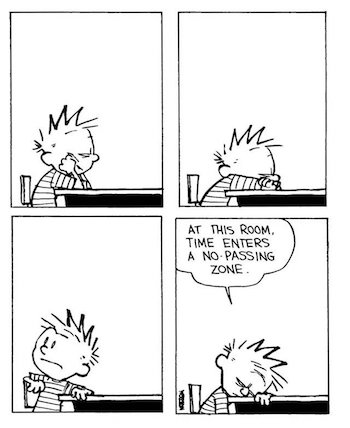

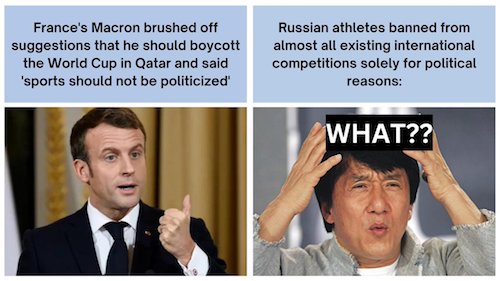

Arizona voting
Michael Schaefer breaks down the fact that the voting machines in Arizona were not certified and thusly the election in turn cannot be legally certified. pic.twitter.com/IWp5Wcb7r2
— Matt Baker (@liqidearth) November 21, 2022



Peacock
https://twitter.com/i/status/1594925565781643265

Family Walk
https://twitter.com/i/status/1594652358658736131


Support the Automatic Earth in virustime with Paypal, Bitcoin and Patreon.










Home › Forums › Debt Rattle November 22 2022